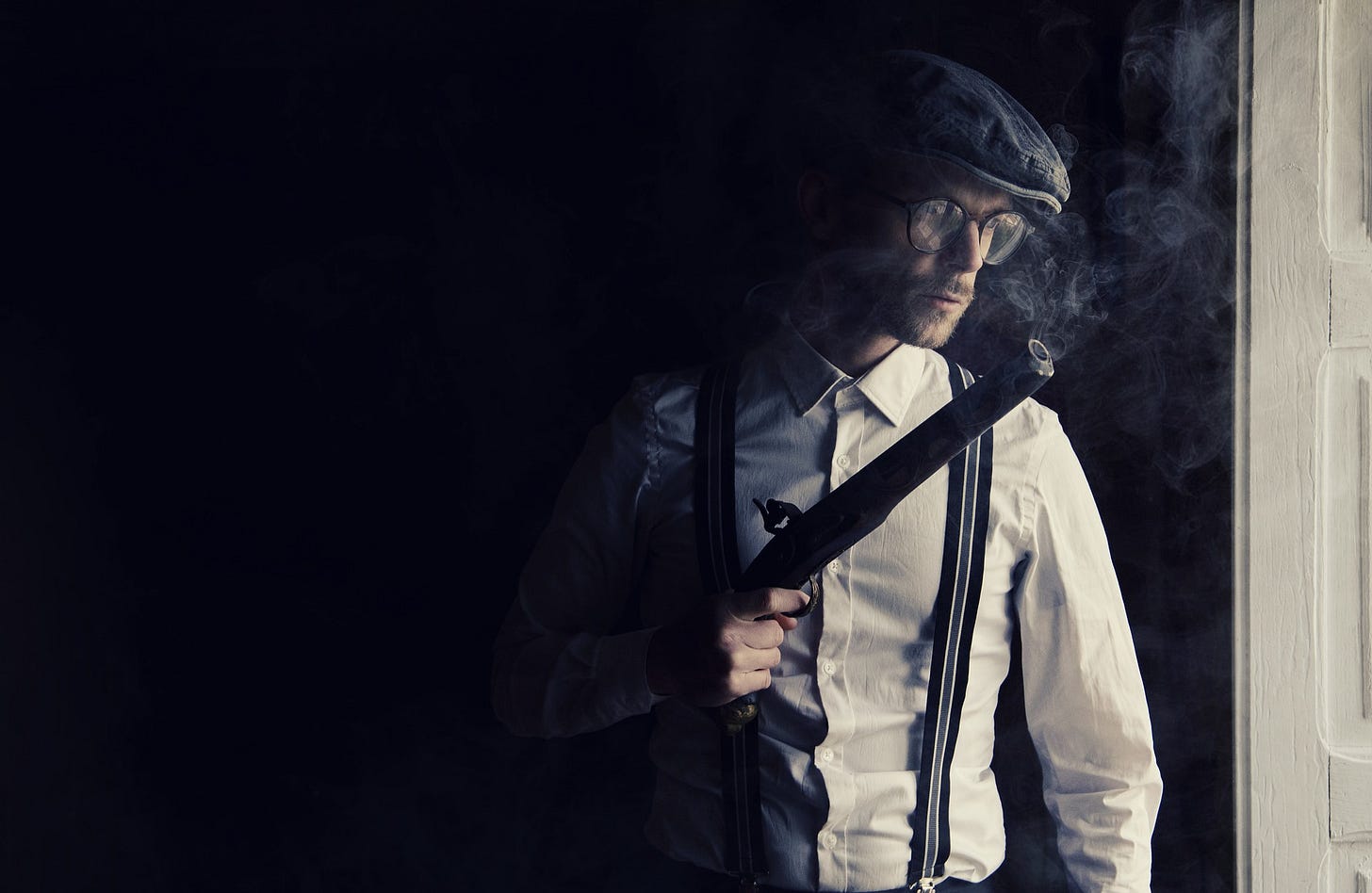Prison is a time-honoured institution still used by modern society to elevate the lower classes. Ministers rarely benefit from this service, never being sent to prison for smashing up a family with their car. This role is reserved for the driver, who is told to speed by the minister, but the driver is at fault for not sending the minister to hell. In the fight against corruption, politicians and other rich people may also, occasionally, be put behind bars, and it is a lie that this is actually a showdown between criminal, sorry, political groups.
Source: Sam Williams, Pixabay
There are many kinds of prisons: detention centres, penitentiaries, dungeons, the Gulag, penal colonies. The prisoners themselves call it the pen, the can, the slammer, the nick, the boob; they love it as a baby loves her mother's breast. In proper English jails are called a correctional facility. This is a precise description of what happens inside: Inmates train each other, improving the quality of their criminal procedures. Jails, unlike formal education, are very effective in the transfer of knowledge. The term ‘penitentiary’ is a misnomer, making it seem as if would not serve correction but punishment. This is not true, because the criminals who come out are much better at their job than the ones who went in.
In the US, prisons are a for-profit industry, with the state guaranteeing full occupancy, which demonstrates just how much jails are needed. There are still many people serving life sentences for marijuana-related crimes, even though it has long been legal to grow and sell in their state. In any case, it is only stupid people who go to prison, because all they’d have to do is cross the state line from Texas to New Mexico, for example, and smoke legally. In Europe you can also go to Holland or the Czech Republic if you want to get high.
Unfortunately, in dictatorships, prison, contrary to its original purpose, is used to take down political opponents. Interestingly, the largest prison population is found in the most democratic country, the USA, where judges, who are extremely optimistic about the prospects of human life, may sentence a person to hundreds of years. 0.64% of the US population — more than two million people — were in prison in 2020. In Japan it is 0.04%, in underdeveloped countries such as Guinea-Bissau 0.01%, clearly demonstrating how backward these places are. Hungary, in 2008, had a rate of 0.15%, but improved to 0.18% in 2004, which shows what progress we have made in the ranking of countries.
Source: Cécile Brasseur, Unsplash
In the third world, prisons are full of parasites: lice, fleas, rats and worse, just like parliament and big business, which shows how democratic an institution we are talking about. Prisons in poor countries are very social places; in the Philippines, the row of sleeping inmates has to turn to their other side together because that is the only way they can fit. In northern Europe, jails are like hotels, inmates can go to university for free, demonstrating that prison really is not for punishment but for rewarding people.
Solitary confinement used to be popular. Nowadays privacy is more valued in having private estates, private armies, private planes, or space travel agencies. Only mafia bosses deserve the luxury of a separate cell, running their business directly from jail. As members of the upper ten thousand are convicted extremely rarely, it's just proles who rule in American jails. The gangs are run by powerful bosses to whom the members owe total obedience. If ordered to kill, you must kill or be killed. The gangs are organised along racial lines, there are white gangs, Black gangs, northern and southern Mexican gangs, with constant war between the syndicates. Mulatto prisoners from central Mexico are in big trouble.
Source: Mircea - All in collections, Pixabay
Inmates are forced into membership as a way of staying alive but leaving the gang is impossible. In this respect, gangs are similar to jails, which are based upon the idea of making leaving impossible. Escape is a perennial delusion for prisoners, some of whom can spend decades digging at walls with a spoon in order to get out. Yes, prison is an extraordinary training ground for developing endurance and self-discipline. Those who really want to avoid prison make a donation to the police or the judges early on. If you come to your senses too late, you can always try to bribe the prison guards like the Whiskey Bandit.
Another American institution is bail. This is a large sum of money, which allows suspects to undergo judicial procedures without being incarcerated. This useful invention ensures that only poor people will spend years on remand, something the rich have no time for. In addition to the poor, members of religious and national minorities also enjoy the hospitality of jails in large numbers, with a special popularity among the indigenous population.
Source: Dibakar Roy, Unsplash
Once inside, prisoners do push-ups and find a variety of other creative ways to exercise. Jails are a health-forming institution as a negligible percentage of the prison population is obese. Inmates also practice a variety of arts, such as tattooing. Most famous are Russian prison tattoos, with popular characters being Jesus, Lenin and Death in various combinations. Homosexuality is also common, which is very trendy nowadays, indicating that prisons are not only modern, but they were always ahead of their time. In Brazil, on the other hand, wives are allowed to visit, relieving guards of the burden of carrying drugs and ensuring that there is plenty of children, that is, a reservoir of future prison population.
The progressive idea that you are free to choose your gender identity has by now reached the prison system in some countries. So when a six-foot-five, wide-tattooed, life-serving serial killer lump of muscle named Joe Smith declares that he identifies as a woman, he is sent to a women's prison, where he will have female cellmates. Since women are gentle and cooperative, it is obvious that her fitting in will be completely harmonious with no danger of violence whatsoever.
Source: Isa KARAKUS, Pixabay
The question may arise as to why jails are needed. Why not give poor people job opportunitiess instead so they don't have to steal? Or perhaps society could aim to compensate the victim instead of punishing the perpetrator. If, for example, someone's house was set on fire, the culprit would be obliged to build a new house or give his own to the victim. Or, if the authorities insist on taking revenge for the fact that they are not the only ones inflicting harm on the population, they could use some other form of punishment. Of course, publicly shaming someone, or giving them a good thumping would be too much torture, much better to lock them up for a few decades, where they won’t even be raped every week. Prison is a humane place where people are treated in a humanitarian manner. Torture, beating and murder are left for inmates and guards.
Prison guards, also known as jailers, turnkeys, screws, etc, are the inmates’ indispensable companion, like Sancho Panza for Don Quixote. There are several types of guards, the most commonly depicted in literature being the sadist, whose main goal in life is torturing inmates. Without jails, this type of person would harm innocent people and would have to be put into jail. This paradox can clearly only be avoided by having jails. There are also humane guards who are forced into this situation by circumstances, corrupt ones who supply drugs to inmates, and completely indifferent ones who just do their job in the prison factory. The latter could also be nuclear scientists: “Hey, I'm just doing my job, it's not up to me to decide which continent gets destroyed by the bomb I've invented.”
Source: S Greendragon, Pixabay
An argument often made is that jails are necessary for keeping dangerous elements away from society. Examples include conscientious objectors who refuse to take up arms. True, politicians, who actually do carry out dangerous acts to society are also kept apart from the rest of us. You can't just walk up to the prime minister and punch him in the face, no matter how much you’d like to. In Hungary the opposition press is also forbidden to enter parliament where politicians are guarded. There also used to be a debtors' prison, it is nowadays called consumer society.
Source: Michael Gaida, Pixabay
Some argue that the military is also just a form of prison. This is nonsense, because if you desert from the army, you go to prison, but if you escape from prison, you don't go to the army. Others say that schools, hospitals, companies, mental hospitals and even kindergartens and crèches are a kind of jail. This is a romantic exaggeration, since you can leave most of these institutions for the night, saving the state a considerable amount of money. According to Eastern schools of philosophy, our very bodies and even our minds are a kind of prison from which we can only be freed by special effort — which shows how natural and spiritual prisons really are.






